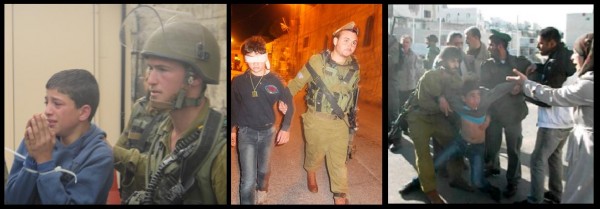24th July 2013 | International Solidarity Movement, Team Nablus | Duma, Occupied Palestine
The International Solidarity Movement had a conversation with Wael Dawabsheh, a clinical psychologist with the Torture Rehabilitation Centre in the West Bank. He told us about his work with torture victims.
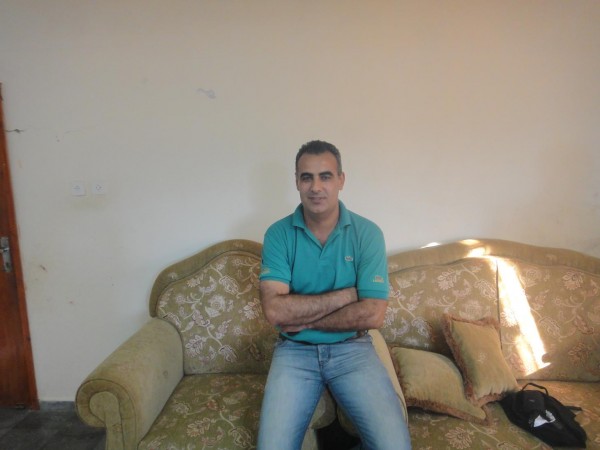
International Solidarity Movement (ISM): What is the Torture Rehabilitation Centre and what work do you do?
Wael Dawabsheh (WD): Our centre started working in the West Bank in 1999, continued through the intifada in 2002 and until now. We are a group of psychiatrists, social workers and psychologists. We work with arrestees, people who have been in Israeli prisons and people who have been exposed to torture, as well as their families. We also work with injured people and the families of martyrs.
We have two programs – outreach and in-office, meaning some of the people we work with come to our offices whilst we see others in their own homes. We work in many places in the West Bank, from the north to the south including Jenin, Nablus, Hebron, Ramallah and around Jerusalem.
Our centre works with people because they have been exposed to torture in many different ways. I think our centre was the first working with the people of the West Bank who have suffered torture. We try to visit every case, but because of the large area and large number of people who have been in Israeli prisons it is just not possible to cover all. Because of this, we have to priorities the most difficult cases and those who are suffering the most.
We have a relationship with the Ministry of Prisoners and Ministry of Health and they sometimes refer to us these most difficult cases. We work with children’s groups and adults groups, both for women and men, but most of our work is with individuals. We also have a community awareness unit, who do workshops around the villages and in refugee camps. We explain our work in these workshops and then afterwards we start to work with anyone who has experienced the issues that we speak about and who need help.
ISM: What are the most common methods of torture used by Israel on Palestinians?
WD: The types of torture used by the Israelis are both physical and psychological. I think the main method of torture the Israelis use at the moment is solitary confinement of prisoners in a small dark dirty room for many days or weeks. During this time the guards and soldiers continually shout abuse and bad words at them. In the beginning when they first arrest them they tie or handcuff their hands and cover their faces with dirty sacks or blindfolds. This creates very bad psychological effects.
Another method of torture currently used we call shabih in Arabic. They tie the prisoners with their hands behind their backs and put them on a very small chair – if they move at all in any direction they will fall down. They put people in this position for many hours.
Another method also forces people to endure very uncomfortable conditions for a long time, but in another way – they keep the prisoner standing for a long time in the sun or in the rain, depending on the season. After that, they increase the effect by using the same conditions in the rooms – if it is hot, they open it to the heat, or to the cold in the winter.
Many, many methods are used by the Israelis to torture Palestinians – they don’t allow for prisoners to see their lawyers, or their families for many weeks or months. Some prisoners don’t see their families for years. The food is very dirty and very bad, especially at the start of the arrest because they put all the youth in very small rooms and they can’t cook their own food. Instead, it is brought to them and it is not good or healthy. The prisoners also don’t have a bathroom in this small room – they have to use something else, like a bucket instead. They also don’t allow them to take a shower for many days and even when they do it is only for a couple of minutes, without privacy because there is no door to the shower stall.
I think these are the main methods – in the past they used shaking, grabbing the prisoner’s neck or head and shaking it – this is very dangerous, one person died after being tortured in this way I think. After that, the Israelis stopped using this method as much – not completely, they continue to do this sometimes. Another issue is that people are suffering from many diseases which are not treated in prison – if they take them to the doctor it is only when they are very ill. I don’t know the number of prisoners who have died in Israeli prisons because they were not treated for their diseases.
ISM: As you said, the Israelis use both physical and psychological torture. Is there a difference in the methods of torture that are used between time in interrogation and in jail?
WD: The first weeks are the most dangerous and difficult for the prisoners because the methods of torture are used more. They use methods that I mentioned before, generally putting prisoners in a small isolation room – which we call zenzana in Arabic – because they want information from them. After this time, maybe two months or a little less, they send them to another prison, with a larger group of prisoners. After that there is less physical torture.
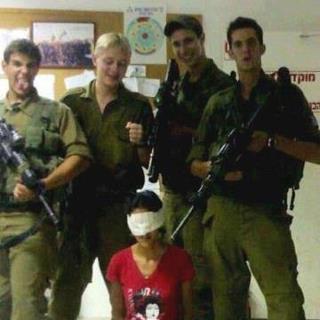
However, not being permitted to see their families, not being allowed access to a doctor and not being allowed to have things that they need can also be considered torture. Everyone has heard about the Palestinian hunger strikers – some prisoners have stopped eating for weeks or many months because they need something from the Israelis which they are not permitted.
ISM: What types of trauma do people that you treat suffer with?
WD: Most suffer from Post Traumatic Stress Disorder (PTSD), especially women and those younger than eighteen. Some people also suffer from depression and a small number of others have schizophrenia. There are also some cases of Obsessive Compulsive Disorder (OCD) and some have epilepsy, because during the torture they have been hit in the head or the Israelis have used very noisy music during their time in prison.
The majority of the people that we work with experience PTSD or depression; we generally work with them for three or four months, in about twelve sessions – or more depending on the level of suffering. We work together as a team – psychiatrists, psychologists and social workers. We give medication to some people if necessary; the psychiatrists see these cases and prescribe the appropriate medicines. But this is a minority and they generally take medication for a short time – maybe a course for three months or six months.
ISM: How do people who need your help know about the TRC?
WD: Some of our cases know about our centre through the media outreach we used to do. Every week we had a small feature on television or radio, so one of us would be on this and speak about our work. Sometimes we would speak to our cases on the phone on the program so people could hear how it was effective. However, due to a lack of funding we had to stop this recently. For the last nine years or so we had a newsletter every month about our work. This contains news about our centre and the stories of some cases, with their photos if they give permission for them to be included.
We also do workshops in the villages – for example, I would go to visit a village like Burin and speak to the cultural centre there or the municipality or any other society. We tell them that we will come soon to do a workshop with people who have been in prison or have been injured by the soldiers. So then we come and speak about our work in the workshop and talk to the people – afterwards, people ask many questions about how we can help them and we give them our address and phone number.
After that, some cases come to the centre, or some prefer to continue with the outreach program in their homes. Some people prefer us to visit them at home because they don’t like people to know that they are seeing us in the centre. Some youth also have a problem to move from their homes to the centre, especially when the checkpoints are difficult – there is a danger that they may be arrested again.
The children that we work with we often treat with group therapy – last week we finished summer camps in Jenin for our cases. This year though, because we have problems with funds, we could only have a small summer camp. These children are mostly suffering from PTSD mostly – generally this is because their fathers are in Israeli jails and the trauma is caused by the deprivation and the prison visits every two or three months.
From four in the morning they take buses to inside Israel, in the south in the Naqab prison or Bir Saba, or far in the north – it’s a long way and it’s very difficult for them. They tell some stories, about the checkpoints, about the cages in the prison. When they see their fathers, there is a wall between them, they can speak only by telephone. For years they weren’t able to hug their fathers or shake hands with them, it’s forbidden. I think for children under five, it is allowed for them to see their father without a wall every three or four months. These children suffer from many problems, such as bad dreams.
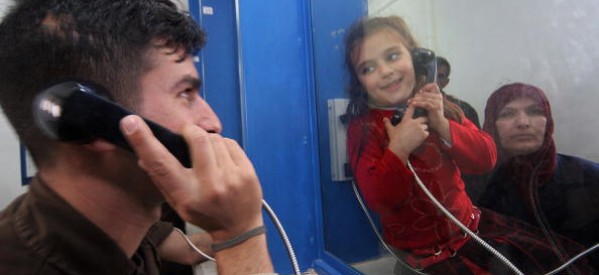
ISM: Do you also work with children who have been arrested and interrogated and experienced torture themselves?
WD: Yes, but this year and for the last couple of years this has not been such a large number. However, this does depend on the area; for example in and around Jerusalem and in Hebron, there are many child arrests because there are a high number of Israeli soldiers there. So, from time to time we do work with many children who are arrested there.
In 2012, we worked with small groups of children from the Nablus area. Most were about sixteen or seventeen years old. They stayed in prison for about six or seven months. Some of them, we work with them for two months and the Israelis arrested them again.
We work with cases of children who were arrested when they were sixteen and when they’re freed they are twenty-five, twenty-six, having spent six or seven years in prison. But now, the number is not large. I think, now there are around two hundred and thirty-six children arrested in Israeli prison.
ISM: Can you tell us about the state of Palestinian prisoners in general?
WD: Every month we have some visits to Palestinian prisoners or we see in the news about the prisoners. Three or four years ago, there were over ten thousand Palestinian prisoners in Israeli jails. Now there are five thousand, including two hundred and thirty-six children and twenty-three or twenty-four women. About one hundred and twelve prisoners have been in prison since before the Oslo Agreements of 1993.
Now I heard in the news that during Ramadan they will release forty of them because the Palestinian Authority said that they won’t negotiate unless Israel stops building settlements and releases these prisoners. They have been in jail for over twenty years, since before the Oslo Agreements. This is very bad for our Palestinian presidents because in the past they must release them in the time. Before 1993, there was no relationship between Israel and Palestine and there was no Palestinian Authority. When the Oslo Agreements were made the Israelis should have released all Palestinian prisoners but, as you know, after that, years and years passed and after 2000 the intifada started and everything was stopped.
ISM: On the TRC website, you say that you want to eliminate the culture of impunity felt by perpetrators of torture, how do you do this and what obstacles do you face in doing so?
WD: We write reports on our cases and tell people how much the Palestinians are suffering because of their treatment in Israeli prisons. In the past we used to send them to many lawyers in the West Bank who we had relationships with.
Some cases we turn into case studies, along with photos of the prisoners. We translate this into English and put the information on the website, as well as taking the case studies to conferences around the world, in Europe, Australia, South America and Africa. We also sent many of the studies to the UN, and other centres from around the world have come here to visit the cases and have done interviews with them.
We have taken four or five cases to the Israeli courts, taking all the papers and reports and show that these people were suffering because of being in Israeli prisons. We testify as psychologists, social workers or psychiatrists, saying that we treated this person in our centre and have a report saying that he is suffering from “1, 2, 3”. So this is what we can do about fighting impunity in the courts. The process of the court cases that we are working is still ongoing – they didn’t finish until now.
But the main thing is to do case studies about the people we work with and send them to the media, conferences and provide them to the groups that come to visit. The main project with this was with the UN, in 2002. However, now, we have some difficulties in our centre so we had to stop many of these projects. At the moment we only treat people, because for the last two or three years we have been only seven or eight social workers and psychologists so we cannot cover all the areas and visit all these people. We need a big team for that.
ISM: And why is it so important that there is not impunity for torture?
WD: It is forbidden to torture any person around the world so we need to show the world that the Israeli “democratic state” uses torture on Palestinians in their prisons, because they regularly present the Palestinians as terrorists in the media. But now the world knows that we are under the Israeli occupation and we must show that our people are tortured by the Israelis.
ISM: Do many torture victims file complaints in the Israeli legal system?
WD: Most of them don’t go to the Israeli court; only a small number go through this process. Some of them have reports from Israeli hospitals saying that were tortured. But people are only referred to Israeli hospitals if the torture has been particularly bad, from the first hours of the arrest.
I work with four or five youth who have epilepsy because the Israelis hit them in the head with guns or against the wall. One boy was beaten with a stick in the head when they arrested him at a checkpoint. He lost consciousness and fell down on the floor. He wasn’t treated well in prison – they didn’t give him any medicine and when he left prison, he suffered from epilepsy every three weeks, because he has a trauma. So in our centre we gave him medicine for epilepsy. But the majority of these cases are suffering until now, because we cannot completely cure epilepsy.
One of my cases used the Israeli reports from when he was in prison and went to court four years ago. They took him to an Israeli hospital to check him for two three days and he had a new report. When he went back home the Israelis called him and said to him “we will give you 200,000 shekels if you stop the court process” but he refused. After that they came and arrested him again. They brought him to Huwwara camp for hours and they tried to scare him saying “we will put you in prison again” “we will kill you” “you will die”. But he continued his case until now, it is not finished. Some of the cases take years in court.
ISM: Do you think the main reason Israel uses torture is to get information from the arrestees?
WD: I think the torture is not only used for information. It is also to punish people, to destroy their personality and resistance and to punish their family. Some people don’t do anything and they still imprison them. In Arabic we call this idari, meaning a sentence without time restrictions. In English I think it’s called administrative detention. Some people go to court and they give him six years and then they will be free. But other people, they put them in prison three months and three months, six months – because they claim that they are dangerous. So, some of them spend years in Israeli prisons without going to the court because they can put anyone in prison without trial.
ISM: Sometimes do people make false confessions if they are tortured, giving invented information just to make the torture stop?
WD: Some of them say things that they haven’t done, especially children. They scare them in prison because it is the first time for them and they are young, they don’t have previous experience. The Israelis punish them or say “we will bring your family to the prison”, “we will damage your family house” so they are scared and will admit to something that they didn’t do. But the majority are strong when they face torture, but all of us are human.
ISM: There is a recent case of five boys in Hares who admitted under torture to throwing stones at a settler car. Afterwards in the court, they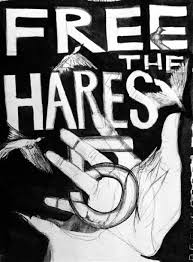
WD: This happens. They say in the court that they didn’t do it, and that they only admitted to it before because they were under torture. I heard similar stories in the Hebron area, with a child who was seventeen. There was an Israeli car accident and the driver died in the car. The Israeli authorities said that children threw stones, so he died because of the stones. I read in the news that they wanted to give the boy 25 years in prison because he killed a person, but in the court the Palestinian lawyer said that if this did happen, when he threw the stone he didn’t mean to kill, it was an accident.
We have many difficult and dangerous stories. Some people spend many years in prison without having done anything. During 2001, 2002 and 2003 the situation was very bad and inside Israel everyday many people were killed; some people went to Israel and put bombs on the buses. During that time, in the Israeli court they gave all prisoners many years in prison, Maybe they did something which should have had a one year or two years sentence, but the judge gave them ten years. Some cases in Burin, their families told me about these cases and they are still in prison, for twelve or thirteen years.
ISM: As a clinical psychologist, why did you choose to work with torture survivors?
WD: I am one of the people who was exposed to torture. When I finished High School in 1992, I wanted to continue studying in Russia as a dentist but the Israeli authorities wouldn’t allow me to cross the border. They sent me back and said to me “you must go to the Israeli army tomorrow”. I went to the crossing every day for a month and every day they put us in a camp and took our IDs from the morning until 4pm – and at the end they always said “come back tomorrow”.
The last time I went, I was asked “where are you going?”, “why are you going to study there?” and many other questions. After I answered, they said “it is forbidden for you to go out but if you help us, we will allow you to go”. I refused and instead, I stayed here and studied to be a psychologist at An Najjah University in Nablus.
While I was at university I was arrested by the Israelis twice, once for six months and then again for two months. It was the same thing for all of us, we were told “you have done something in the university, in the political movements”. When I finished my studies, I got a one-year diploma here in Palestine and after that I started working in the TRC from 2003. I’ve been working here for 10 years.
ISM: Do you see differences in the regions of the West Bank regarding the use of torture?
WD: There are no differences, we see the same cases all over. But it depends on the situation in the area – for example, during the intifada Nablus and the north were very bad, so in Nablus, Jenin and Tulkarem, we had a large number of prisoners, whereas from Ramallah there were not so many. In Hebron and in the Jerusalem area, many are under eighteen or they were in the prison under eighteen.
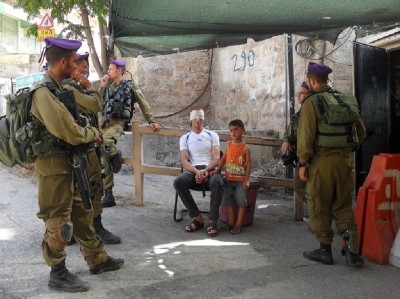
However, I think in all places the methods of torture are the same – often the Israelis pressure them to be a spy and work for them. They especially use the children for this, they scare them, or maybe they say to them “we will help you, we will give you money”. They don’t necessarily ask them directly to be a spy, instead they just say “tell us who throws stones, how many people are in the area and what are they doing”. Some of the prisoners become spies because of this.
I went to Gaza last year – it was my first time there. We have a relationship with a rehabilitation centre there so we went to speak to the people. In Gaza, they give people permission to come to the West Bank to go to the hospital or to go to Israel, but at the checkpoint, they don’t allow people to actually leave even though they have permission. Instead they try to make them be spies, saying “we will give you a permit to go to the hospital if you help us”. We have many cases like this.
ISM: We know that Israel has signed treaties that ban the practice of torture including the Universal Declaration of Human Rights and the UN Convention against Torture, do you have a message for the Israeli authorities about this?
WD: I would say to Israel, if you are talking about democracy and human rights, you must tell the government to stop all methods of torture against us. The world knows that you have occupied us and one day you will be held accountable in a court. The court could be Israeli, Palestinian or European and you will be punished for your use of torture against us.
As Israeli or Jewish people, you suffered from torture sixty years ago or more; if in the past you were the victims how can you now be the perpetrators? Why? You occupied our land and anyone under occupation has the right to fight. If you believe in peace you have to leave our land and be our neighbours.
ISM: Do you want to add anything else?
WD: Being in Palestine you can see everything that is going on around, how we live but in the past our life was even more difficult. Today is comparatively okay, now you can move from place to place but in the past that was very difficult – there were always many checkpoints.
But Palestinians are still forbidden to go to Jerusalem, it is surrounded by the wall. During Ramadan they are allowing some people to go on Fridays – women are permitted at any age but men can go only if they are over the age of forty. Eight years ago, before they started to build the wall, you could move freely to any place. Now they don’t allow anyone to go to Jerusalem. Many young people have never visited Jerusalem, nor do they know about Haifa or Jaffa. In the past every week or month we used to go to Jerusalem with our fathers or friends, as we now go to Ramallah or Nablus. But now it is closed.
They speak about freedom but that’s only for the media. Go to Qalandiya and you will see how they treat people at the checkpoint. But I believe that this wall and the occupation must end and the Israelis know that. They know that their state is for some time but not for ever.
We have workshops in Jerusalem and Haifa with Israelis social workers called Physician for Human rights and we speak about many things. Some of them say “yes, we must leave from West Bank and Gaza and be neighbours” but they don’t do anything against their government.

